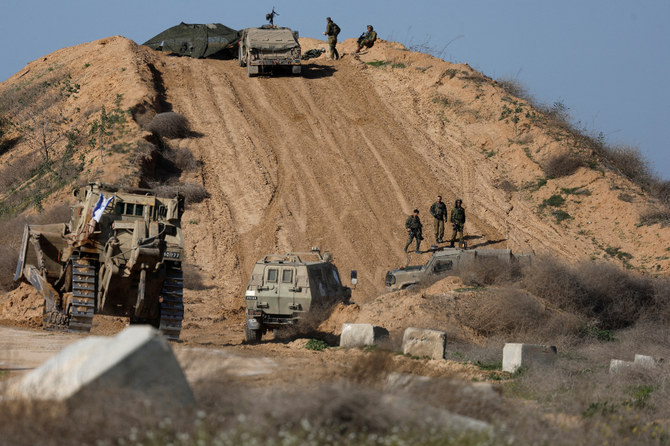JERUSALEM: Prime Minister Benjamin Netanyahu is grappling with a deepening crisis following Israel’s most significant single-day troop losses in the Gaza conflict, coupled with mounting protests over the government’s failure to secure the return of hostages.
The Israeli military’s strategy in the Palestinian territory is facing intense scrutiny after 24 troops lost their lives on Monday, marking Israel’s highest daily casualty count since the ground offensive in Gaza commenced in late October. Among the casualties were 21 reservists who died in a single incident, described by Netanyahu as a “disaster.”
Emmanuel Navon, a Tel Aviv University lecturer, noted that the troop losses resonate across the country, where many have family members involved in the conflict. Questions about the strategy and the pursuit of Hamas’s elimination are gaining prominence among Israelis.
Simultaneously, divisions have emerged within Netanyahu’s war cabinet, fueled by protests in Tel Aviv and outside his Jerusalem residence. Relatives of hostages rallied, urging the swift return of captives. The war cabinet’s mood is described as “very bad,” with members questioning the compatibility of Netanyahu’s commitment to eliminating Hamas with the goal of rescuing hostages.
Benny Gantz and Gadi Eisenkot, two members of the five-person war cabinet, have rejected Netanyahu’s stance that only military pressure on Hamas will lead to the hostages’ return. Eisenkot, whose son died in the conflict, stated in an interview that an agreement with Hamas is necessary for the safe return of hostages.
Netanyahu’s promise of “total victory” over Hamas, in response to the October 7 attack, faces increasing skepticism within the cabinet. The toll of the conflict, including over 1,140 deaths, mostly civilians, and approximately 250 hostages seized by militants, adds pressure for a reconsideration of the approach.
Despite calls for talks similar to the November deal brokered by Qatar, the United States, and Egypt, Netanyahu rejects negotiations with Hamas. He insists on pursuing victory and accuses Hamas of setting conditions that include an end to the war and withdrawal of Israeli forces.
Experts anticipate Netanyahu’s determination to continue the conflict, suggesting that he sees it as a strategic move to bolster his political standing despite growing pressure for a change in approach. As the crisis deepens, Netanyahu faces a challenging political landscape, with the war potentially serving as a means to rebuild his position beyond 2024.

